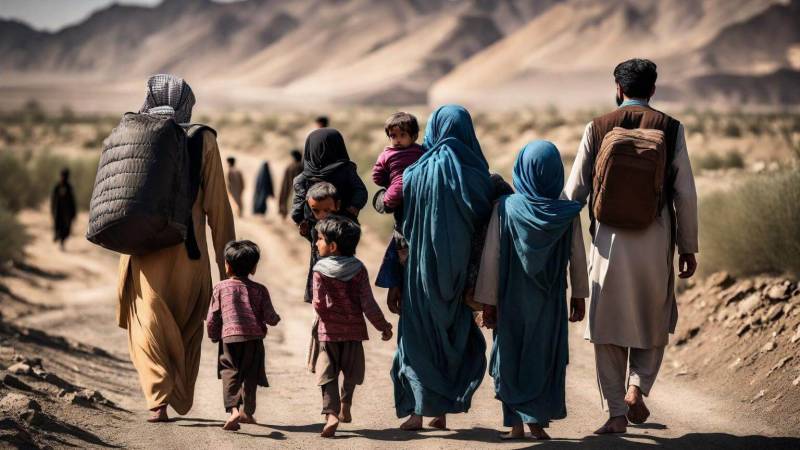
As a deadline looms for undocumented and illegal migrants to leave Pakistan, including a large number of Afghan refugees, Kabul has indicated that it remains in talks with Islamabad on the matter, hoping to find a middle ground on the subject even as it anticipates and prepares for addressing a large responsibility.
"Both the countries should find some middle ground in this matter," said Abdul Mutalib Haqqani, a spokesperson for the Afghan Ministry of Refugees and Repatriation, while speaking exclusively with The Friday Times.
Around a million Afghan refugees are expected to be forced out of Pakistan after the November 1 voluntary repatriation deadline ends. Refugees have termed the move as being the equivalent of a bomb being dropped on them.
"Obviously, the people who were living there (in Pakistan) for decades, [forced to leave] over a short notice of repatriation, would be in great trouble," he said, mentioning that the matter should be resolved with negotiations.
Uprooting 'settlers'
Haqqani said that many of the Afghans who are affected by Pakistan's new policy on migrants and illegal migrants will impact Afghan refugees who have been living in Pakistan for decades.
He added that these refugees are settled there with their families.
Afghan response-ability
Haqqani said that so far, some 53,000 Afghans have returned from Pakistan, and they expect thousands more to cross over in the subsequent days. Even though he hinged hopes on talks, Haqqani said that Afghanistan was preparing to tackle the challenge of welcoming and settling a massive influx of refugees with winter just days away.
These challenges include housing, nourishment and other care for such a large influx of refugees.
"Under Islamic laws (which heavily influence the laws introduced by the Afghan Taliban), all the refugees will be settled in the country [Afghanistan], and future plans have also been evolved for them," Haqqani said.
The Afghan government, he said, plans to make arrangements for the employment, residence and other necessities of repatriating Afghans.
For this purpose, he said the government has started drawing up feasibility on providing permanent residence to the returning families.
"This is our responsibility; we will openly welcome them," Haqqani said, mentioning that it would be a gigantic task but asserted that Afghans have the nerves to deal with all kinds of challenges.
Responding to a question about educational facilities for children of Afghan families forced to repatriate, Haqqani said that the interim Afghan government would make arrangements for providing education to these people.
"Under Islamic law, education facilities would be given to the repatriated students," he said, noting that a large number of Afghans are crossing into Afghanistan from Pakistan daily.
Bombshell
When contacted, members of some Afghan families who were packing up their life in Pakistan ahead of the forced return to Afghanistan said the repatriation announcement was nothing short of a bombshell - noting that bombshells were literally what had forced them to flee Afghanistan in the first place.
Now, they were being forced to uproot their settled lives.
One family said that they are still in a state of disbelief and uncertainty over starting a new life in a country which they have barely known in recent years.
"I still have no idea how issues, including residence, employment, education and other matters would be resolved [in Afghanistan]," one family told The Friday Times.
Some of the refugees said they would seek shelter and work through their relatives across the Durand Line but admitted that the move could prove to be quite difficult.
Shahid Hussain from the Sarhad Chamber of Commerce and Industry (SCCI), which represents traders and manufacturers who deal with their counterparts across the Pakistan-Afghanistan border, told The Friday Times that there was a lot of confusion and anxiety amongst the people who are returning to Afghanistan or are due to make the journey in the coming days.
Conceding that it was wrong to live illegally in any country, but to repatriate people who can be classified as refugees within a very short time could prove to be very difficult for everyone involved.
Pakistan saw some of the largest influx of Afghan refugees in the wake of the American withdrawal from Afghanistan in August 2021. But at the beginning of October, Islamabad announced plans to expel all illegal migrants by November 1. A phased expulsion of Afghan refugees would follow it.
A vast majority of these illegal migrants, comprising an estimated 1.7 million Afghans, reside in Pakistan.

